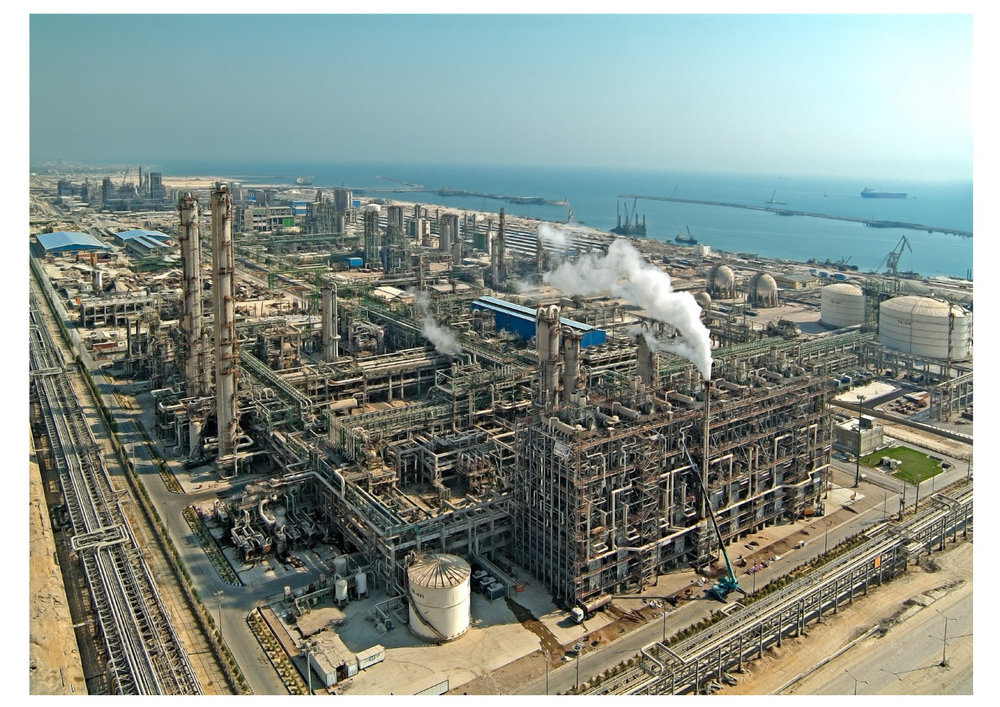Value of Iran’s petchem export rises 32% in 9 months on year

TEHRAN- The value of Iran’s petrochemical export has increased 32 percent in the first nine months of the current Iranian calendar year (March 20 - December 21, 2024), as compared to the same period of time in the past year, the head of the Islamic Republic of Iran Customs Administration (IRICA) announced.
Foroud Asgari said that 50.7 million tons of petrochemicals worth $19.7 billion have been exported during the mentioned nine-month period, indicating 33.25 percent growth in weight year on year.
As stated by the head of Iran’s National Petrochemical Company (NPC), the petrochemical industry plays a vital role in promoting Iran’s status in the international economy.
Hassan Abbaszadeh wrote in a message on the occasion of the National Petrochemical Industry Day (December 8): “Today, this industry is not only the supplier of an important part of the domestic needs of the country, but with its powerful presence in the world markets, it plays a vital role in maintaining and improving Iran's position in the international economy.”
Based on Iran’s seventh National Development Plan (2022-2027), the country’s petrochemical production capacity is planned to increase by eight percent to reach 130 million tons.
The Islamic Republic is also going to invest over $40 billion in the petrochemical industry for the eighth National Development plan to further expand the mentioned sector and complete its value chain.
Currently, Iran accounts for 2.8 percent of the world's petrochemical capacity and about 28 percent of the capacity of this industry in the region, and with the plans made, the capacity of the petrochemical industry will increase significantly in the horizon of the seventh development plan.
According to the latest data released by the NPC, the capacity of Iran’s petrochemical production will reach 103 million tons by the end of the current Iranian year (late March 2025).
Also, considering that about 60 petrochemical projects are planned to go operational during the seventh National Development Plan, 35 million tons will be added to the country’s petrochemical capacity by 2027.
The head of Iran’s National Petrochemical Company (NPC) has said that completing the value chain and developing complementary industries is going to ensure a balanced and sustained development of the country’s petrochemical industry.
“The development of the industry in all sectors must be pursued seriously, and for this purpose, all the people active in the petrochemical industry must pay attention to the development of complementary industries according to the existing capacities in the country,” Hassan Abbaszadeh has stated.
Stating that the provincial development of complementary industries, in addition to job creation, can create more added value, he said: "The development of downstream industries should be pursued and implemented seriously, and the National Petrochemical Company is ready for any cooperation in this regard."
Emphasizing the existence of suitable capacities for investment in complementary industries, Abbaszadeh said: “The portfolio of petrochemical products can be diversified with the cooperation of holdings and petrochemical companies.
Iran's petrochemical sector is set to increase its foreign currency revenue to over $25 billion, bolstered by new investments in natural gas production, according to Ahmad Mahdavi, Secretary-General of the Iranian Petrochemical Employers’ Association.
Speaking to local media on December 24, Mahdavi revealed that 10 agreements have been signed to address the country's natural gas supply imbalance and invest in gas fields. These agreements, totaling $8.0 billion in investment, are expected to enhance daily gas production by 200 million cubic meters.
As Tasnim News Agency reported, the new projects are slated to be completed by the end of Iran’s Seventh National Development Plan (2026). Once operational, they are projected to significantly boost the foreign currency income generated by the petrochemical sector, positioning it as a key contributor to Iran's economy.
Mahdavi urged the Oil Ministry and government to streamline licensing processes to expedite investments in this critical sector. He emphasized that these initiatives could substantially mitigate the nation’s gas supply shortfall while supporting industrial growth.
MA
Leave a Comment